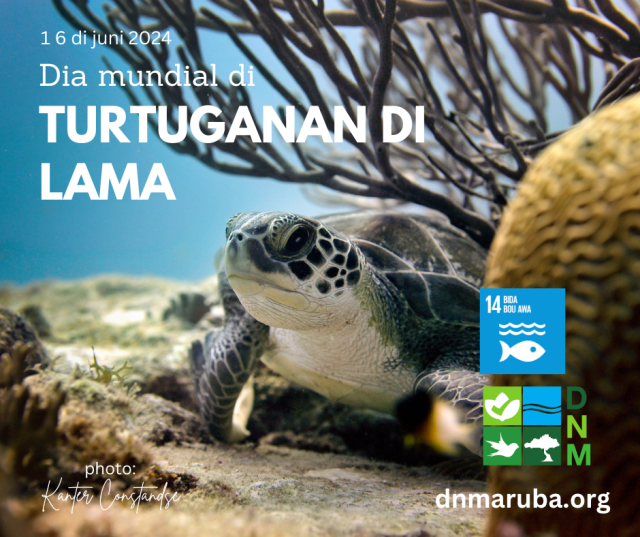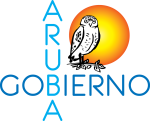World Sea Turtle Day: Too Many Watersport Activities Cause Problems for Sea Turtles.
ORANJESTAD - On June 16th, we celebrate, honor, and recognize the significance and importance of sea turtles.
On this day, the Department of Nature and Environment (DNM) wants to emphasize that all six species of sea turtles are protected by the law Landsbesluit Bescherming inheemse flora en fauna.
The protected species are:
- Hawksbill turtle (Eretmochelys imbricata);
- Loggerhead turtle (Caretta caretta);
- Green sea turtle (Chelonian mydas);
- Leatherback turtle (Dermochelys coriacea);
- Kemp’s ridley sea turtle (Lepidochelys kempii);
- Olive ridley sea turtle (Lepidochelys olivacea).
Every year, sea turtles come to our beaches to lay their eggs but face many challenges due to watersport activities. Boats and jet skis that are not cautious with the sea turtles, hotels that do not comply with the rules for placing and removing beach chairs used by tourists, and even beach activities with too much lighting hinder and confuse the sea turtles when they come ashore to lay their eggs. Therefore, the DNM has published the Standard Operating Procedures (SOP) regarding animal-friendly lighting, such as for sea turtles. The SOP is available at www.dnmaruba.org.
Pollution of the sea and beach with plastic also poses a danger to marine life, including sea turtles. Plastic is a significant threat to the survival of sea turtles and can accelerate their extinction. Sea turtles confuse plastic in the sea with food and eat it, with all its consequences. Therefore, the DNM urges the community to change their use of single-use plastic to more sustainable options.
Learn more about sea turtles:
- Artificial light causes disorientation and makes them go in the wrong direction when laying eggs;
- female turtles return to the same beach where they were born. They are sensitive and have an incredible ability to navigate long distances;
- they have no teeth. Their jaws are of the same material as nails (keratin);
- the estimation is that no more than 1 in 1000 sea turtle eggs will survive and become an adult turtle;
- they prefer food with red, orange, and yellow colors. Their curiosity to explore these colors in the sea causes them to eat a lot of plastic by mistake.
Contribute by helping to keep the beach free of waste and especially free of plastic and other objects that could hinder sea turtles from coming ashore to lay their eggs. If you dig a hole during your visit to the beach, remember to fill it in before you leave. The TurtugAruba organization is doing tremendous work by raising awareness about these species and organizing various clean-up actions on different beaches. Be active in our community, become a volunteer for an organization, and help preserve and protect the sea turtles that come to Aruba.

